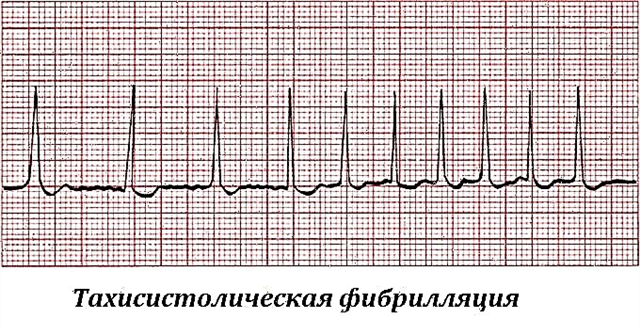Sore throat is an infectious disease, which is most often caused by bacteria such as streptococci and staphylococci. The main symptoms include acute sore throat, a significant increase in body temperature, and enlarged lymph nodes. Sources of infection are most often patients in the acute phase, while infection often occurs through airborne droplets or through the use of common utensils and other household items. However, you can get infected from people who are carriers of the infection, while they themselves do not experience any symptoms of sore throat. After all, the bacteria that cause sore throat are in the nasopharynx of most adults, showing no activity in unfavorable conditions for them.
Features of the treatment of infection
 As you know, most of the diseases caused by bacteria can be treated exclusively with antibiotics. Medicines in this group can quickly help with angina, alleviating the symptoms of the disease. In order to choose the right antibiotic, you need to consult a doctor, who, based on the tests performed, most often a throat swab, will prescribe an effective treatment.
As you know, most of the diseases caused by bacteria can be treated exclusively with antibiotics. Medicines in this group can quickly help with angina, alleviating the symptoms of the disease. In order to choose the right antibiotic, you need to consult a doctor, who, based on the tests performed, most often a throat swab, will prescribe an effective treatment.
Only correct and timely treatment can exclude the possibility of developing complications that often occur in patients with angina. However, despite the effective implementation of antibiotic therapy, the patient may experience complications.
Possible complications of taking antibiotics
Even if antibiotic therapy for angina is selected correctly, patients often experience various complications. The most common of these are diarrhea. In this case, diarrhea against the background of the use of antibiotics can appear in both an adult and a child.
The thing is that when you take any antibiotic that can help with angina, not only pathogenic microorganisms die, but also bacteria, without which the full existence of the human body is not possible. Thus, treatment has a negative effect on the normal intestinal microflora. All this provokes the development of inflammatory processes in the intestines, and can lead to various irritations that cause diarrhea.
The main causes of diarrhea
 Various disorders of the digestive tract can result from
Various disorders of the digestive tract can result from
- intoxication after the use of drugs;
- overdose.
The thing is that the complex of drugs used during the treatment of angina can have a negative effect on the digestive system. Oral medication often irritates the lining of the digestive tract, which can cause abdominal pain, nausea, and diarrhea. Most often, the first symptoms appear in the patient immediately after using the antibiotic, disappearing after the substance is completely absorbed in the intestine.
An overdose of a medication prescribed by your doctor can also cause nausea and diarrhea. In this case, you should immediately stop treatment and seek medical help.
Often antibiotics can have individual intolerance, their use can cause allergic reactions, diarrhea, vomiting, etc. Such situations require a special approach to the patient and the replacement of the current drug with another.
Moreover, complications in the process of taking medications for angina can manifest themselves in both adults and children. In a child, the course of angina is often more complex, because the child's body is more susceptible to intoxication. Such poisoning of the body can provoke the onset of the syndrome of "gastric sore throat", which occurs exclusively in childhood, and is accompanied by nausea, abdominal pain and diarrhea. It turns out that diarrhea and other disorders occurring in the stomach or intestines are a kind of protective reaction of the body, that is, they are a way of removing harmful substances.
Important! Be careful when giving antibiotics to children - taking medications can cause problems with the digestive system.
Prevention of diarrhea
When it comes to prevention, then in this case the following rules must be observed:
- observe the rules of personal hygiene, be sure to wash your hands thoroughly;
- adhere to the most correct and balanced diet with a high content of vitamins and other useful microelements, which will help increase the resistance of organisms to diseases;
- do not use other people's things, personal hygiene items, dishes;
- be careful when dealing with patients with angina, using a cotton-gauze bandage;
- when caring for a patient, it is necessary to carry out not only control of the treatment process, but also to do wet cleaning several times a day;
- despite the fact that after taking antibiotics, the symptoms of the disease can disappear quickly enough, you cannot cancel the medicine yourself in order to avoid complications;
- use hardening, because this method is highly effective for the prevention of colds and viral diseases. However, hardening must be carried out in a healthy state, and not after you get sore throat;
- try to consume more vitamins. Provided that your diet is already rich in nutrients, regular probiotics can be used.
In order to replenish the loss of fluid during diarrhea, vomiting and fever, it is necessary to consume a sufficient amount of fluid, using clean boiled water. Also useful for sore throat with complications will be a light chicken broth, which will help to replenish the body's strength, saturating it with the necessary substances. If the unpleasant symptoms persist, the use of sweet water is allowed.
What is the danger of diarrhea with angina?
 Vomiting and diarrhea are dangerous for a weakened body. Especially carefully it is necessary to treat the symptom data when treating a child. The main danger lies in the high likelihood of dehydration, due to too frequent bouts of diarrhea.
Vomiting and diarrhea are dangerous for a weakened body. Especially carefully it is necessary to treat the symptom data when treating a child. The main danger lies in the high likelihood of dehydration, due to too frequent bouts of diarrhea.
Therefore, the treatment of angina should be aimed not only at destroying the pathogenic microorganisms that caused the disease, but also at reducing the side factors that appear after taking antibiotics. In order to effectively combat the treatment of vomiting or diarrhea with angina, it is necessary to determine the causes of these symptoms. If the cause is intoxication, then you should try to drink as much liquid as possible. You can also use sorbing drugs that can speed up the process of getting rid of such unpleasant symptoms.
To prevent the occurrence of more severe complications, the following rules must be observed:
- consume a sufficient amount of liquid, not less than 1.5-2 liters per day;
- follow the doctor's instructions;
- support the intestinal microflora.
The causes of diarrhea with angina can be different, however, be that as it may, it signals that the body needs help.
During diarrhea, the patient needs to be calm and warm.
Remember that usually diarrhea with angina should go away in a few days. After the termination of antibiotic therapy, the intestinal microflora begins to recover, and the number of beneficial bacteria normalizes. The growth and reproduction of such microorganisms helps to restore the functions of the gastrointestinal tract.During this period, it is necessary to carefully monitor the nutrition of both the adult and the child, monitoring the condition until complete recovery and restoration of the microflora.



